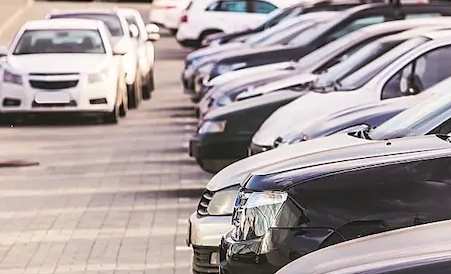According to industry players, safety requirements like 3-point ELR seat belt and reinforcement of rear seats for luggage retention have added to the cost of passenger vehicles in India.
New Delhi: Rising input costs to meet mandatory safety requirements as well as growing consumer preference for features such as six airbags in all variants are making carmakers increase prices despite sluggish demand, according to industry players.
Marker leader Maruti Suzuki India on Wednesday announced that it will increase prices of various models by Rs 2,500-62,000, from April 8, the second hike this year after increasing by up to Rs 32,500 across various models from February 1.
Similarly, BMW Group India has already increased by 3 per cent on select models from this month.
Hyundai, Tata Motors, Kia India and Honda Cars have also announced plans to hike vehicle prices starting in April.
“The price increase is purely on account of input costs of regulatory changes and that too a partial passing on of such costs,” a spokesperson of Maruti Suzuki India said when asked why the company is hiking prices at a time when the overall passenger vehicle market is sluggish.
BMW Group India President & CEO Vikram Pawah said, “As a practice, we review it every quarter, and because of the exchange rate, and the input costs going up, we revise the pricing. We also did a slight price revision in April by up to 3 per cent on specific models.”
According to industry players, safety requirements like 3-point ELR seat belt and reinforcement of rear seats for luggage retention have added to the cost of passenger vehicles in India.
“Also, the rising demand from consumers for more safety features like six airbags across variants have added to the cost,” an industry executive said.
The price hikes have come at a time when the industry is witnessing slugging sales, expecting growth to be in the range of 1-2 per cent in FY26.

